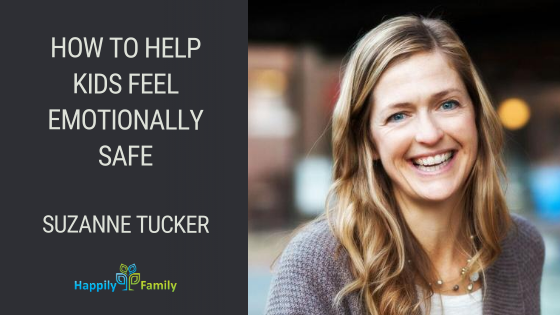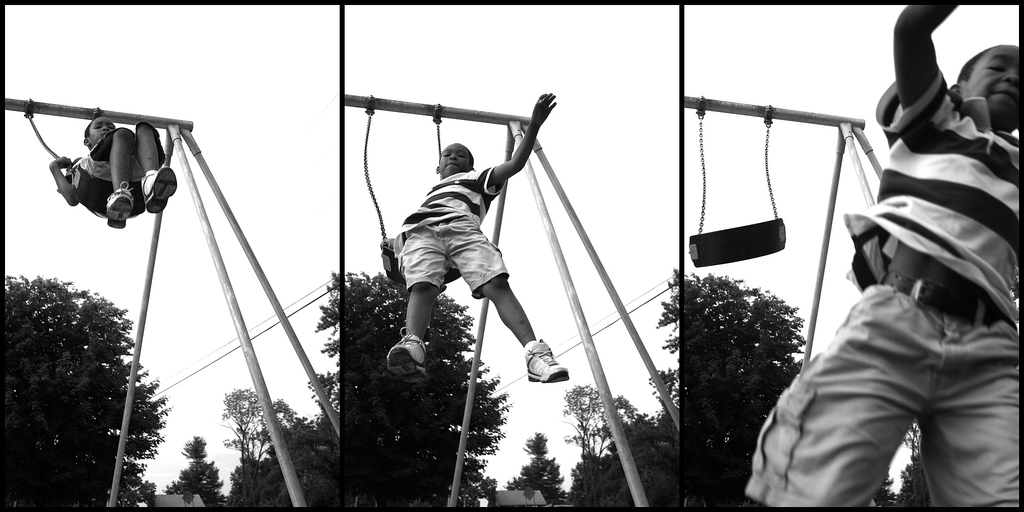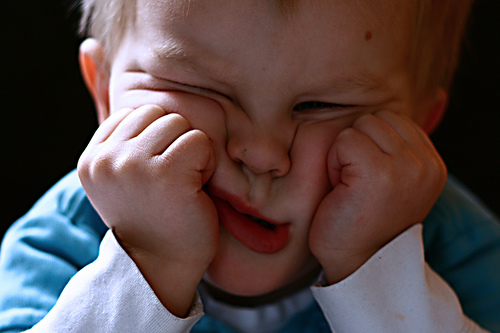We’re going to tell you a quick story about our days as classroom teachers to illustrate something about human nature and parenting. It’ll all make sense in a second. We promise.
Each fall, when Jason and I were preschool teachers we got new students in our classroom. These 3-year-olds came to the school, in order for them to separate from their parents and start playing, they had to decide if our classroom was safe, not physically safe as much as emotionally safe.
Kids would watch me and Jason to figure out if they were going to be emotionally safe. But these 3-year-olds didn’t watch us all the time, they mostly watched us when other kids were “at their worst”–when other kids cried, got hurt, “misbehaved” or had a meltdown.
If Jason and I were at our best, when those kids were at their worst, then all kids felt safe. If we helped the “misbehaving” child, if we understood them and comforted them, then ALL kids got the message that we loved and cared for them regardless of what they did or said.
We still had limits and agreements in our classroom, we still kept kids physically safe. And at the same time, we had unconditional love (also called “unconditional positive regard”) for all the kids.
So what does this story have to do with you?
To some extent, this same thing happens in your family. To some degree, your children watch you to decide if they are emotionally safe–to do things, or say things, or to truly express how they feel.
The good news is you don’t have to parent perfectly for your kids to feel loved. You can lose your patience, you can do “re-do’s”, you can be human. You don’t have to be “at your best” all the time.
More good news: the love and caring you have for your children has a reinforcing effect. Kids do well when they feel well. Kids who feel loved and accepted are more likely to consider others, make positive choices, and act appropriately. Kids who feel accepted and safe can have a stronger voice, stand up for themselves, and have empathy for others.
Kids who don’t feel loved unconditionally will trade themselves for safety, acceptance, and approval. Kids who don't feel loved have a harder time having empathy for others (they can’t give what they haven’t received).
Recently we talked to Suzanne Tucker, Founder of GenMindful, about unconditional love… how to show kids that they are loved unconditionally and how kids that feel loved have more understanding for others, and even how unconditional love helps with kids who are “bullies”.
P.S.
This is the hard work of parenting. Most of us didn’t feel loved unconditionally as kids. Most of us are trying to give our kids something that we didn’t get growing up.
Be gentle with yourself.
As you learn how to be gentle with your kids, you will also learn how to be gentle with yourself. Extend the same grace to yourself, as you do for your kids.
Resources:
Here’s a free audiobook, Heart’s Treasure Hunt, from Suzanne and Generation Mindful.
We are supporting GenMindful because we believe in it, not because we are being paid to promote it.
Get the full interview in The Village by Happily Family.
And if you’d like to be on LIVE, while we talk to luminaries like Suzanne Tucker AND get coaching with Cecilia and Jason, join The Village, no charge for your first month.









